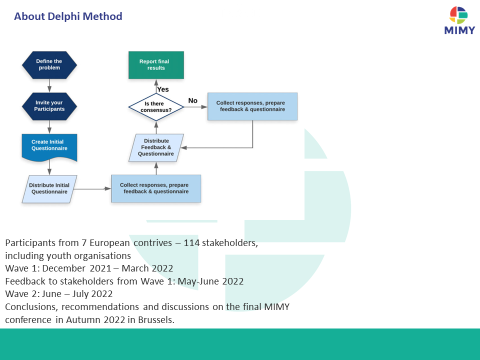MIMY Youth-informed Delphi Study Brief

Majority of 114 experts who took part in the first wave of our MIMY Youth-Informed Delphi Study indicated that policy addressing integration of non-EU migrants should be an on-going, open-end process of living together targeting various groups of migrants with specific needs along with targeting local population.
In order to make the policy of integrating young adult migrants we need multi-level coordination mechanism and structural dialogue where NGOs should play an important role.
There is expert consensus that populist government in power mostly impact the shape of a policy linked to migrants. Media influence was in the top three most important factors in all countries except UK, where situation in countries of origin is the most important factor. In Germany important was also funding of NGOs (and lack thereof).
Experts concluded that policy instruments linked to young adult migrants are necessary for the following categories of young adults: victim (e.g. war; trafficking; domestic violence, sexual abuse, religious hate), asylum seekers and refugees, mentally disabled, physically disabled and LGBTQI migrants.
The main issues which should be covered in the young migrant integration policy design are:
- Exploitation (prostitution and human trafficking),
- Racism, xenophobia and prejudice,
- Housing availability,
- Leaving orphanage, refugee centre, shelter or other care institution as young adult, exclusion,
- The level of motivation of the local population to actively engage in the integration of young migrants is generally low. The highest motivation is in Local NGO services/projects focused on integration.

